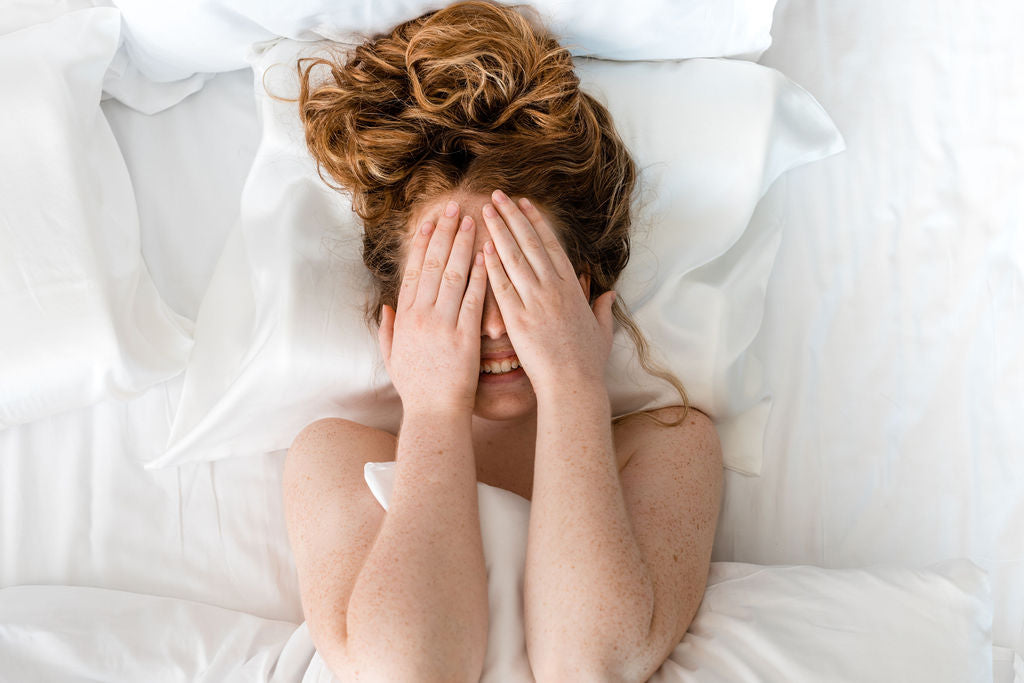
Five Sleep Hygiene Tips to Help You Rest Easy
Share
One night of poor sleep can make it hard to get through the following day, but chronic poor sleep can wreak havoc on your overall well-being. From impairing your ability to drive safely to increasing your risk of developing heart disease, poor sleep quality can make it impossible to live your best life. Thankfully, implementing sleep hygiene best practices can help.
What is Sleep Hygiene?
All behaviors and habits that influence your sleep are considered a part of sleep hygiene. Research on sleep is constantly evolving, as are best practices for getting great sleep. Some positive sleep hygiene habits can be implemented immediately (like staying away from the phone and TV for a few hours before bed), while others take time to develop (like keeping a similar sleep schedule no matter what the day of the week).
Here, we'll take a look at some sleep hygiene best practices to help you feel refreshed and rested.
An important note: everyone's sleep needs are different. What works for you might not work for someone else, and vice versa. We encourage you to try some tips to improve your sleep hygiene and keep engaging in the habit if it works for you. Implementing 2–3 tips at a time can help you understand what sleep hygiene improvement tactics are the best fit for your body and lifestyle. It can be helpful to keep track of your sleep via a mobile app or smartwatch so that you can understand which habits are contributing to improved sleep.
Top Sleep Hygiene Tips
Avoid caffeine after noon.
Leading sleep researcher Dr. Matthew Walker warns of the dangers of caffeine, especially close to bedtime.
"First, and most obvious for some people, is that it stops you falling asleep. Some people, however, say, 'I can have a cup of coffee after dinner and I fall asleep just fine, so I'm not one of those people that is sensitive to caffeine.' And that's quite dangerous, because we also know that even if you can fall asleep, the depth of the sleep that you have when caffeine is swilling around within the brain is not going to be as deep anymore," says Walker of caffeine's impact on sleep.
No one is asking you to get rid of your morning cup of coffee, but it's important to pay attention to how caffeine affects your sleep. Many people find that cutting caffeine out after noon can help them fall asleep more easily, but some people may need to nix the coffee even earlier.
Get some exercise--but stop strenuous workouts at least four hours before bed.
Physical activity during the day can make it easier for you to fall asleep at night, according to the Centers for Disease Control. Working out too close to bedtime, however, can rev up your energy and make it harder for you to relax.
Bonus points if you get your workout done outside, during daylight hours. Spending some time in the sun (with sunscreen, of course) can help signal to your brain that it's time to be awake--which can make it easier for you brain to realize when it's time to go to sleep.
Remove electronic devices from your bedroom.
It's easy to pass away the nighttime hours scrolling on your phone, wondering how it's 1 am, and you're still researching topics you have no reason to research (we've all done it). Keeping electronic devices out of the bedroom can a smart move for getting better sleep. If you must keep your phone in your bedroom at night, try placing it out of arm's reach, so that you have to get up and get out of bed if you decide to check your notifications.
Go to bed and wake up at the same time every day.
Sleeping in on the weekends can feel like the right thing to do after a stressful workweek, but throwing off your sleep schedule does you more harm than good, according to Dr. Walker.
Of trying to make up for lost sleep, Dr. Walker says, "We know that if I were to deprive you of sleep for an entire night — take away eight hours — and then in the subsequent night I give you all of the sleep that you want, however much you wish to consume, you never get back all that you lost. You will sleep longer, but you will never achieve that full eight-hour repayment, as it were. So the brain has no capacity to get back that lost sleep that you've been lumbering it with during the week in terms of a debt."
It sounds simple, but one of the keys to getting enough sleep is to set your schedule in a way that allows you to do so.
Work stress management into your day.
We've all been there--lying awake, counting the hours until the alarm goes off. Stress can certainly keep you up at night, and working stress management strategies into your waking hours can be a great way to help you improve your sleep hygiene.
The key to improving your sleep by managing daytime stress is discovering what works for you. Many people find that meditation--even for just five minutes--during the day can make it far easier to drift off to sleep at night. Others find that strenuous exercise creates an outlet for stress that allows them to have an easier time falling asleep. Yoga, therapy, and walking outdoors can all have a similar effect.
Your Pillow: Time to Upgrade
We believe that sleep should be restorative--you shouldn't wake up feeling worse than you did when you went to sleep. That's why we designed our pillows to eliminate pressure wrinkles while supporting both long- and short-term physical and mental health. Combine a pillow that's made to work for you--not against you--with proper sleep hygiene to get the benefits in mood, appearance, productivity and health that come with a good night's sleep.
